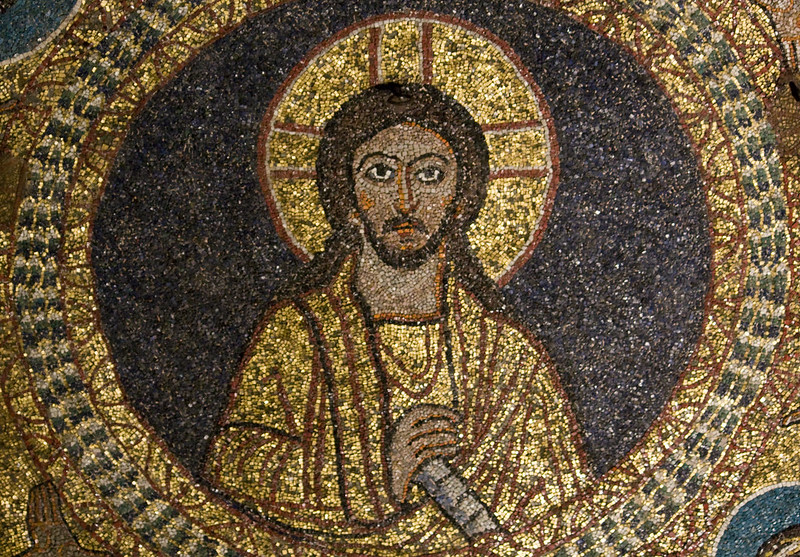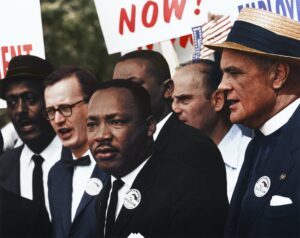Destitution, alienation, and suicide are not commonly what “good teachers” teach us. Yet our communities honor several such bad teachers as the epitomes of good ones. Christ is a prime example; parents and priests teach the young to honor him, even though he told the young to “hate” the first and revile the second (Lk 14:26, Mt 23, etc.). Socrates is another—anyone imitating the father of Western philosophy in a philosophy class would surely be failed, for impudence, irrationality, and pointlessness. If we take these teachers seriously, they will not improve our lives.
But is a teacher supposed to improve our lives? Lee Edelman asks the same question in his recent book Bad Education: Why Queer Theory Teaches Us Nothing, and he considers some of the same figures. From the title, you might guess a right-wing culture warrior wrote it to caution undergraduates against gender studies. But in fact Edelman is a leading scholar in queer theory. He doesn’t think the field will fail to teach you. He thinks it will teach you how some people don’t count as anything at all, and that there’s nothing you can do about it.
In his first chapter, he warns us he is serious about his title, and that he might also be one of those bad teachers. Edelman asks, “But must teaching necessarily affirm and conduce to the good of our survival? Can we imagine an education—what this book will describe as a bad education—that would function, instead, as a leading out [Latin: ex + ducare] from whatever we think ‘we’ are, even if that leading out is one that ‘we’ cannot survive?” Like Christ leading his followers to “lose their life” (Mk 8:35), Edelman proposes a version of queer theory that exposes life’s brutality and incoherence, but it will not show us how to keep on living.
I might sum up Bad Education in two quotations that Edelman includes, one in the epigraph and one in the coda. First, psychoanalyst Jacques Lacan: “We place no trust in altruistic feeling, we who lay bare the aggressivity that underlies the activity of the philanthropist, the idealist, the pedagogue, and even the reformer.” Then, Socrates: “I know that I know nothing.” The second invokes intellectual diffidence, at least ironically (which is important). The first points to how Edelman does queer theory; he takes the side of “the antisocial thesis,” the camp of theorists that is suspicious about “progress” and “inclusion,” that writes about the breakdowns in who we are and what we want. Edelman then concludes Bad Education by using the negative spirit of the first to revise the second, saying instead, “I know that I don’t know nothing.” This unknowable “nothing” is what he means in his subtitle. No matter how hard you try, you can’t include everybody in a single community, and you can’t think about everything in one theory. Something always gets pushed out or covered up — “undesirable” thoughts or “dangerous” people or “meaningless” ideas — not by accident but because that is how community and thought work. The excluded excess, the garbage, is what Edelman calls “nothing,” since it can’t be included as “something” or “someone” that matters.
In Edelman’s often cryptic lexicon, he uses many other misnomers (“catachreses”) for this “nothing.” The main one is “queer.” He does not use it to mean gay or trans or any specific sexed “identity,” no matter how expansive, but exactly the opposite. As he wrote in an earlier book, “queerness can never define an identity, it can only ever disturb one.” Edelman wants the term to stay negative, to designate the social dysfunction of restless desires, which, when they grip us, always exceed the rules and unsettle who we think we are. Drawing on African American studies (especially Afropessimism), he uses “Black,” too, as a misnomer for nothing. Again, for these theorists, “Black” does not refer to particular people—Africans or their descendants—but to those not regarded as people at all. For Edelman and his fellows, “where Black lives, [or] queer lives, … achieve legitimation, they will have ceased to signify in terms of queerness, [or] Blackness.” (He includes “woman” and “trans*” as similar cases, but spends most of his time on the first two.) To be called “Black” or “queer” is not to have a positive identity; it is to be scapegoated, to be regarded as “embodiments of a negativity inassimilable to being.”
Readers may be lagging now, if they have even made it this far. Edelman’s rhetoric often obscures and frustrates as much as it clarifies. Why can’t “Black” and “queer” just mean what they mean in ordinary language? Why give them a perversely different definition (or lack of definition)? I stuck with Edelman because his lexicon echoes archaic Christian categories. “A negativity inassimilable to being” sounds a lot like “privatio boni,” that old theological name for evil. Evil isn’t an extra thing in creation. Every part of creation is good in itself. Evil is more like a cut. And because evil is no thing, we can’t talk about it directly. When we try to describe evil, we tend to describe a person or thing that it has rent, and soon we shift the designation from the tear to the torn thing. Christian Platonism and queer theory are both trying to draw asymptotes toward a moral void, in order to turn “meaninglessness into sense,” as Edelman says. He has essentially written an apophatic theology of sin. It’s as though he wrote The Divine Names in reverse.
This odd convergence is what most attracts me to Edelman. It is also what most exasperates me. Traditional Christian analyses of sin (or “nothing”) teach us to respond to it with some remedial deprivation: separate yourself from “this present evil age” (Gal 1:4) by pursuing poverty, chastity, martyrdom. This lesson seems to me unbalanced, so I hope for a better education somewhere else. Edelman seems to understand the problem in the same way as me, but his only remedy is an ironic disposition. Speaking of the BLM protests in 2020, he writes,
The events of this June exemplify the imperative of affording the shelter of meaningful being to those living negated identities. But they also remind us that meaningful being occasions those negations in the first place. That is the structural lesson that Bad Education attempts to unfold: the lesson that, as lesson, can only ironize what it teaches.
He still believes in progressive politics but is not naive. He calls inclusion an “imperative,” but he knows that inclusion always involves exclusion of somebody else, who endangers or refuses the new inclusivity. He concludes, then, with irony, the emotional equivalent of pious poverty.
Edelman’s queer theory gives a unique and urgent analysis. But it’s making me restless, and I won’t settle for irony. I think queer theology and “gay science” give us better responses.
*
The queer theologian Linn Tonstad has already considered this knot in Edelman’s thinking. She sees a parallel between his “queer negativity” and Augustine’s talk of original sin. She emphasizes this parallel so strongly that Paul Griffiths sees in her work “the delicious possibility that queer theology in at least one of its forms might be a kind of Jansenism”—the early modern heresy that emphasized human depravity. (Notably, an essay important to both Edelman and Tonstad, “Is the Rectum a Grave?” begins with an epigraph from the most famous Jansenist, Pascal: “The self is detestable.”) Some queer theologians write apologiae to the church, to include those who are excluded; Tonstad wants to consider what we do when we realize total inclusion isn’t possible.
Thankfully, Tonstad takes Edelman’s endless analysis in a more humane direction, by giving us something earnest we can actually do: practice humility. She tells us that Edelman’s way of thinking “requires the confession and analysis of our own temptations towards purity and purification rather than crediting ourselves with inclusion.” In her very Protestant (or Jansenist!) way of thinking, Christian conscience sharpens itself so acutely that it learns to see the self-righteousness in all righteousness (“the aggressivity that underlies … the philanthropist”), and so to suspect any attempt at goodness. This thinking could defeat itself and lead one to endless asceticism, a new source of pride. Instead, she gives us a line from Marcella Althaus-Reid, the pioneer of queer theology: “Queer holiness … is always the holiness of the Other.” Tonstad’s idea of humility leads us away from appraising ourselves at all and toward regarding others, especially those who are deemed impure.
Edelman makes a very similar point with psychoanalysis, and I was disappointed he didn’t develop this line of thinking. He tells us that Lacan, who loved puns, described analysis as “décharite,” a French portmanteau of “trash” and “love.” This version of analysis “aligns itself with those made queer by dominant opinion,” Edelman explains, “those consigned to the position of ontological exclusion.” An analyst loves their patient not by coaxing them into what society deems a meaningful life but by merely listening to the shit the patient’s mind expels, by refusing to respond in disgust, thereby becoming shit themself. “Décharite” is solidarity.
This version of analysis is, of course, dangerous. By resisting the norms of a “meaningful life,” the analyst “makes space” for the patient, but also leaves the patient with nothing to structure their life, only a dead end. Edelman does not seem to mind. He quotes another analyst, Jean Allouch: “‘What is someone who has been psychoanalyzed? … He is … someone who no longer has a future.’” Having no future allures me, the way punk or chic or tragically romantic lives do, but it gets old. However, identifying myself with perverts and failures and undesirables is dubious but homely; unsophisticated and unwise, but livable. Instead of a melancholy irony, Edelman’s negative view of human nature could inspire an impish affection, a way of suspending ethical anxiety while actually fulfilling the law. If I know I’ve already failed, then I can finally stop worrying about how to love perfectly; I can just love. Dilige et quod vis fac.
All of this is the serious response to Edelman, the attempt at being morally responsible: even if we can’t be good, we can be good at being bad. (You could call this perspective an “apophatic ethics” if you wanted to be a real nerd about it, which I do.) Queer theology teaches us, when we inevitably can’t include (or save) everyone, to affiliate ourselves with sinners. In the face of the same problem, “gay science” teaches us simply to refuse guilt and rejoice, even in our grief, that we are alive.
When Nietzsche titled his book La Gaya Scienza he was referencing the Provençal tradition of the troubadours. He feared the nihilism that would emerge as Europeans lost their faith, and he wanted to inspire a defiantly effervescent spirit to take shape in God’s absence. “Gay” didn’t mean “sodomitical” to Nietzsche in 1882, but his translator Walter Kaufmann notes that the Gay Liberation Front chose that term in 1969 because of what gay had always meant: I will like what I am, even if my only reason is that I want to.
Which is another reason Bad Education disappointed me: the author doesn’t seem to like anything. Everything, even writing this book, is a failure to include everyone and everything that needs to be. (“[T]his book will try, and fail” even to teach us that lesson, he says.) The voice of the book is a killjoy. But in his acknowledgements, that little, perfunctory section I often skip, I found an entirely different spirit, overflowing with gratitude and vitality, without a hint of irony. For a mentor (who wrote “Is the Rectum a Grave?”): “the man and his kindness were inseparable from his genius.” For a friend, “whose presence in my life makes living it that much more fun.” For his partner: “this book, like everything else that I do, is done for him, with him, and through him. I owe whatever I may be as a critic to all that I’ve learned from him.” Edelman claims he cannot teach us how we might survive his “bad education.” But he could say how he has learned to survive it, and as an educator no less.
Edelman’s peers in queer theory complain on this point, too, but unlike them, I agree with his negativity. I am not looking for a grand theory of progressive political optimism. That would be a lie. But it also seems dishonest to write such a dour book when one lives such a vibrant life. In this regard, a comparison to Nietzsche seems especially apt. Nietzsche failed in life but dreamed in letters; Edelman writes without hope but lives exuberantly, specifically in the ways Nietzsche failed: as a professor, as a lover, and as a friend, even to his mentors. I’m not looking for a confession from Edelman, but I would like to know when he stops being so serious about his irony.
Edelman arrives at irony because he wants to tell the truth absolutely. He wants to say what it is really like to think about and to live in the world: we make some people and things disposable, like garbage. If our consciences are especially tender, that fact never stops disturbing us. Reading Bad Education alongside The Gay Science, then, is all the more fitting, because Nietzsche tells us that Christianity taught us this lesson first.
The Gay Science is most famous for the parable of the madman, who cries out, “God is dead. … And we have killed him.” According to Nietzsche, we killed him by becoming more and more Christian:
You see what it was that really triumphed over the Christian god: Christian morality itself, the concept of truthfulness that was understood ever more rigorously, the father confessor’s refinement of the Christian conscience, into intellectual cleanliness at any price.
The argument is perhaps a little passé now, that modern atheism is just late-stage Christianity, that the secular world is the aftershock, not the enemy, of the Gospel. But the evidence for it never ceases to pile up, and it always rattles me. Edelman’s queer theory, like Marxism or radical feminism, reflects the Gospel back to Christians, as if to ask both believers and activists: Do you really believe you owe your neighbors everything? And that how you treat the excluded is the measure of your life? How will you bear that weight?
Where queer theology might replace irony with humility, gay science replaces it with exuberant mourning. As Nietzsche concludes his work, he hears “the spirits of [his] own book” laughing at him, asking for a song “so sunny … that it will not chase away the blues but invite them to join in the singing and dancing.” Nietzsche is shamelessly earnest, but not austere; he takes horrors seriously, but even his seriousness comes from full-throated joy, not caution. Which is really why Edelman’s irony disappoints me so much; he is a scholar of literature, but that literature only teaches, never sings.
I wish I could forget the bad education Jesus gave us, that those who suffer poverty and prison are the face of God, and that we are responsible for all of them. But we need not make of it an insatiable and joyless conscience, condemning us for every pleasure. So Jesus himself was accused: “‘a glutton and a drunkard, a friend of tax collectors and sinners!’” (Lk 7:34). Unclean and convivial, he only endangers us because he teaches no restraint in how to love the world.
Kendall Gunter grew up in Virginia and now lives in New York City.
Photo Credit: Lawerence OP




